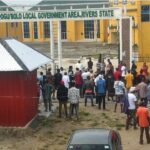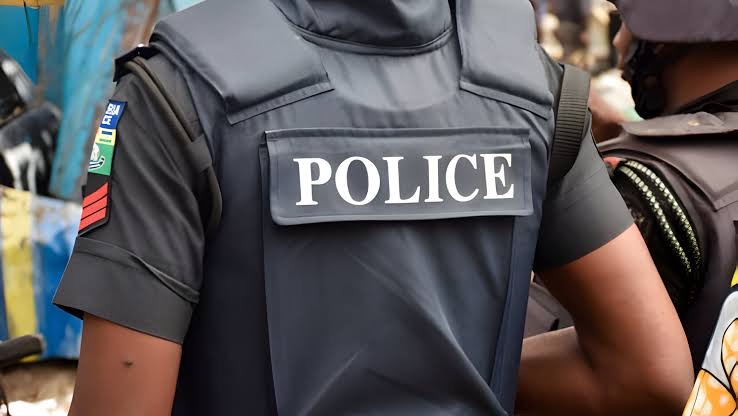Tim Walz and JD Vance took the stage on Tuesday night for a vice-presidential debate that, while less dramatic than September’s presidential face-off, highlighted significant differences on key issues such as abortion, school shootings, and immigration.
Three weeks earlier, Kamala Harris and Donald Trump had faced a much more heated 90-minute debate. An emotional Trump, provoked into a rant about his rally attendance numbers, went so far as to label Harris a “Marxist” and reportedly threatened to sue one of the moderators. Harris saw a brief polling boost following that event.
However, on Tuesday, Walz and Vance largely refrained from personal attacks, focusing their critiques on each other’s running mates instead. The debate was more policy-focused than the previous presidential one, though a few notable gaffes could potentially overshadow the substance of the discussion in the days to come.
In a pivotal exchange on abortion, Minnesota Governor Tim Walz followed Kamala Harris’s approach by sharing personal stories. Walz criticized Trump, stating, “Trump brags about how great it was that he put the judges in and overturned Roe v. Wade.” He referenced Amanda Zurawski, who was denied an abortion in Texas despite severe health complications and is now part of a lawsuit against the state. Walz also highlighted the case of a young girl in Kentucky who was raped by her stepfather and became pregnant.
“If you don’t know [women like this], you soon will. Their Project 2025 is going to have a registry of pregnancies,” Walz added, a claim that Vance strongly contested.
Walz also took aim at the Trump-Vance stance that states should have the authority to decide women’s access to abortion. “That’s not how this works. This is about basic human rights,” Walz argued. “We’ve seen maternal mortality skyrocket in Texas, surpassing that of many other countries.”
When Harris was considering Walz for the vice-presidential spot, he reportedly told her that debating wasn’t his strong suit. At the outset, Vance, in a sharp blue suit, pink tie, and carefully styled with makeup and hair gel, appeared the more polished candidate. Walz, a former high school teacher and football coach, projected a more energetic, hands-on presence, dressed in a loose black suit.
Vance, the Ohio senator and frequent guest on right-wing news outlets, maintained his polished demeanor throughout. He skillfully sidestepped a question about whether he believes the climate crisis is a “hoax” by pivoting to criticize the large sums of money spent on solar panels.
Walz ascended to the vice-presidential nomination partly due to his strong performances on cable news, where he famously labeled Vance and Trump as “weird.” However, during the debate, he appeared somewhat nervous at first and refrained from delivering the sharp, biting critiques of his opponents that had become his trademark.
Both men frequently highlighted their Midwest roots during the debate. “I will be the first to tell you I have poured my heart into my community, trying to do the best I can, but I’ve not been perfect, and I’m a knucklehead at times,” Walz said as he navigated a question about his time in China. He added, “[Minnesotans] elected me to Congress for 12 years.”
Walz also took aim at Trump and Vance for vilifying immigrants in Springfield, Ohio. He condemned the false claims that Haitian immigrants were eating people’s pets, a narrative that has led to bomb threats and prompted police escorts for children on their way to school.
Asked about immigration, one of the key issues in November, Walz discussed Harris’s history in California, demonstrating that the real goal here was for both him and Vance to talk up their bosses’ records rather than sell their own
“Kamala Harris was the attorney general of the largest border state in California. She’s the only person in this race who prosecuted transnational gangs for human trafficking and drug interventions,” Walz said, defending his running mate’s record on immigration.
Vance, however, blamed Harris for the surge in border crossings under the Biden administration. In response, Walz brought up a bipartisan border bill, backed by the National Border Patrol Council, that had been blocked by Trump earlier in the year. “As soon as that was getting ready to pass and actually address this issue, Trump said ‘no’ and told them to vote against it because it gives them a campaign issue,” Walz argued.
The immigration discussion led to an uncomfortable moment for Vance. Trump has stated that, if elected, he would carry out “the largest deportation in the history of our country.” However, in a nation where some children of non-citizen parents are U.S. citizens, Trump has failed to clarify how this would be implemented. When asked whether a Trump administration would separate immigrant parents from their U.S.-citizen children, Vance twice refused to provide an answer.
Walz’s missteps, by contrast, were more related to style than substance, but they could become ammunition for the right in the coming days. He was questioned about his incorrect claim that he was in Hong Kong “when Tiananmen happened,” referring to the 1989 anti-government protests and massacre. It was revealed this week that Walz had actually been in China in August, two months after the events.
“Look, I grew up in small, rural Nebraska, a town of 400, a town where you rode your bike with your buddies until the streetlights came on, and I’m proud of that service,” Walz began, attempting to sidestep the question entirely. When pressed further, he acknowledged, “I got there that summer and misspoke on this. So I will just … that’s what I’ve said. I was in Hong Kong and China during the democracy protests. And from that, I learned a lot about what needed to be in governance.”
As the debate neared its end, both candidates were asked about school shootings and whether AR-15 style rifles, which have been used in several mass shootings, should be banned. Vance called school shootings “terrible stuff,” but quickly shifted the blame to Harris, claiming there has been “a massive influx in the number of illegal guns run by the Mexican drug cartels”—despite the fact that most guns used in school shootings are legally purchased. While Democrats have advocated for stricter gun controls to reduce mass shootings, Vance offered a different perspective.
“What do we do to protect our kids? And I think the answer is, and I say this not loving the answer, because I don’t want my kids to go to school in a place that feels unsafe or where there are visible signs of security, but I unfortunately think we have to increase security in our schools. We have to make the doors lock better. We have to make the doors stronger. We’ve got to make the windows stronger,” Vance said.
Walz was more direct in his response, sharing that he had met with the parents of children killed in the Sandy Hook school shooting. He emphasized, “Our first responsibility is to our kids,” and outlined his red flag policies in Minnesota.
“I ask all of you out there: if your schools are hardened to look like a fort – is that really what we have to go through?” he said.
He continued, “I think what we end up doing is start looking for a scapegoat. Sometimes it’s just the guns.”
However, his strong stance on gun reform was overshadowed on social media when he accidentally said he had “befriended school shooters” instead of victims.
Vice-presidential debates have traditionally been seen as less significant, and it remains unclear how much impact this one will have. However, with the election expected to be extremely close, if either Vance or Walz managed to sway even a few voters, then the hour and a half of scrutiny—and even the gaffes—will have been worthwhile.






